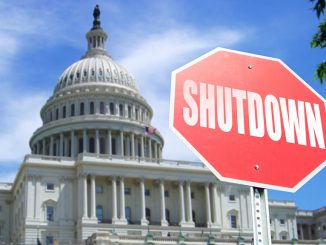So, what are the current political examples of government intervention that fail to comply with the targeting principle?
One example can be found in climate policy. The introduction of binding CO2 targets for all sectors in order to achieve CO2 neutrality is currently debated. The measure is certainly appropriate. But does it also get to the heart of the problem?
The heart of the matter is that too much CO2 is being emitted. If something is too much, it is probably because it is too cheap (see also the discussion about high meat consumption). Consequently, CO2 would have to be more expensive. Or should cost something at all – a CO2 tax would therefore be a much more direct way of achieving this goal. Producers would try to get away from the now expensive CO2 by investing in clean technologies. In addition, everyone can decide for themself what is better/cheaper for them: installing a filter is certainly cheaper than changing the entire production technology. Cost-effective solutions would therefore be implemented quickly, even in industries that are currently not in the spotlight because they emit little CO2 – but from a climate perspective, it doesn’t really matter where CO2 is saved as long as there is less of it overall. But a mandatory CO2 target for each sector would mean that the government knows exactly how much can be saved in each case. This may well be the case, but the cost of determining this specifically for each sector would be an unnecessary burden on the public finances. Or to put it another way: The cause of the market failure, namely cost-free pollution, has been eliminated, and now the market can and should act efficiently within this framework.
Another example: In order to save firms that have run into serious problems in the course of the pandemic control measures, the State takes (partial) ownership. Also with the ulterior motive of repositioning them in terms of climate policy. However, the issue is not the faulty business model of the firms but the demand shock. Bridge loans would therefore be much more suitable than a corporate activity by the government, which in view of very different objectives does not fall within the competence of the government or its representatives. The argument that the government’s involvement is only temporary is not very convincing when you consider examples like Commerzbank or Deutsche Bahn.
The focus on certain sectors (automotive) and technologies (e-mobility) by politicians also violates this principle. To what extent political ad hoc measures can meaningfully support the necessary structural change or whether the selected technology is really sustainable will ultimately be decided by the market. And this is not an abstract entity, but reflects the needs and wishes of all of us as consumers. Any influence of the government violates this self-determination. It also requires the use of (too) many resources that can be used much more efficiently elsewhere. It remains the task of politics to ensure framework conditions for the economy so that it can develop for the benefit of all. Interventions can only be justified if they are targeted and pursue a socially desirable goal.
So from an economic perspective, how can we assess Corona measures such as lockdown, contact restrictions, short-time work compensation, compulsory masking and government involvement in vaccine developers?
References:
Morasch, K., Bartholomae, F.W. (2017): Handel und Wettbewerb auf globalen Märkten, 2nd updated and extended edition, Springer Gabler: Wiesbaden.
Bhagwati, J. N. (1971) “The generalized theory of distortions and welfare”. In: Trade, Balance of Payments and Growth. Papers in International Economics in Honor of Charles P. Kindleberger, Edited by: Bhagwati, J. N., Jones, R. W., Mundell, R. A. and Vanek, J. 69–90. Amsterdam: North-Holland.





